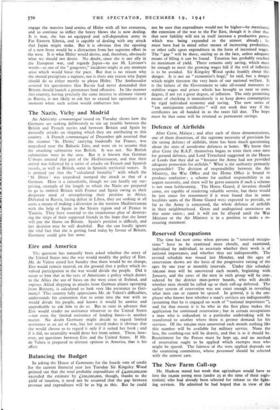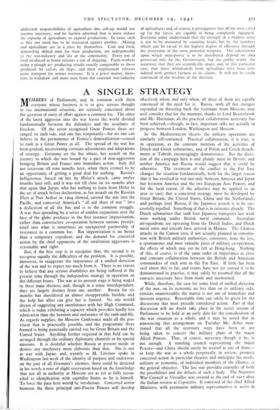The New Farm Call-up
Mr. Hudson stated last week that agriculture would have to lose the xo,000 young men (under 25 at the time of their regis- tration) who had already been selected for release to the fight- ing services. He admitted he had hoped that in view of the
additional responsibilities of agriculture this call-up would not become necessary, and he further admitted that it must reduce the capacity of agriculture to expand production. In cases such as this one need has to be measured against another. Mining and agriculture are in a class by themselves. Coal and food, demanding skilled men for their production, are indispensable to the war-industry and life of the community. Every ton of food produced at home releases a ton of shipping. Farm-workers using a plough are producing results exactly comparable to those produced by sailors on ships, and their employment releases more transport for armies overseas. It is a grave matter, there- fore, to withdraw still more men from the essential war-industry of agriculture; and, of course, it presupposes that all the men called up for the forces are capable of being completely equipped. Everyone today understands that the strength of a modern army is not to be measured by counting heads, but by the numbers which can be raised to the highest degree of efficiency through the possession of the most powerful weapons. The calculations upon which man-power is to be distributed depend on data possessed only by the Government, but the public wants the assurance that they are scientifically made, and, in this particular case, that these withdrawals from agriculture have been con- sidered with perfect fairness to its claims. It will not be easily convinced of the wisdom of the decision.























 Previous page
Previous page